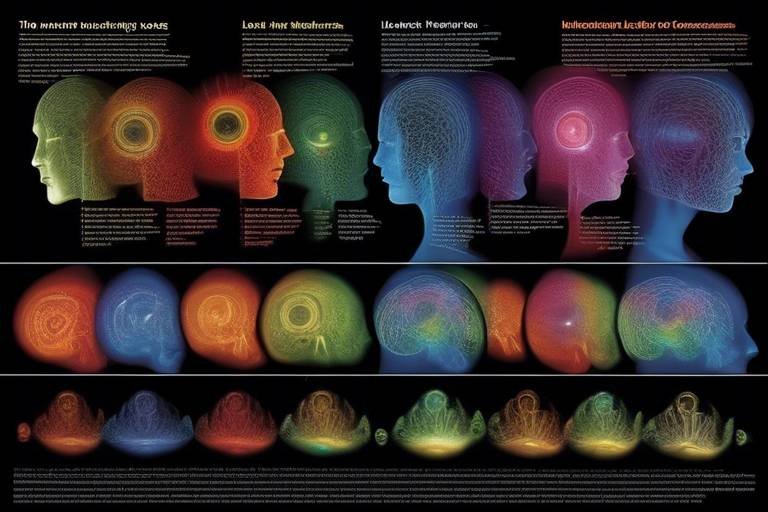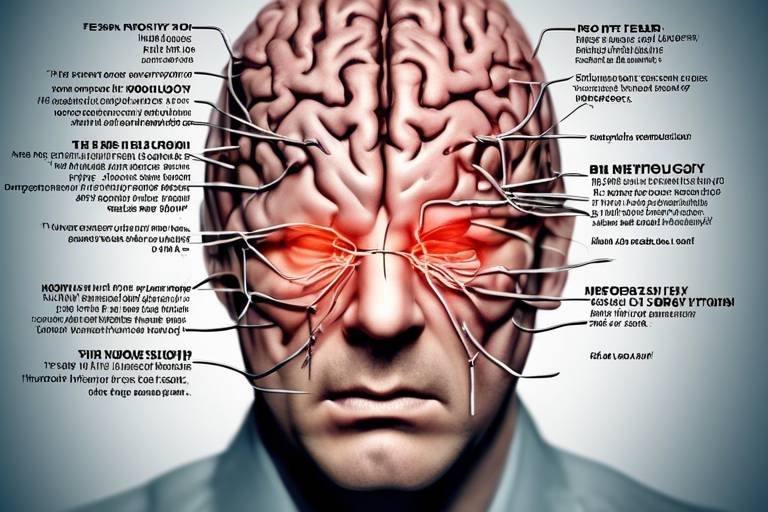Self Consciousness - A Blessing or a Curse?
Self-consciousness is a fascinating yet complex aspect of human psychology. It’s that little voice in your head that makes you hyper-aware of your actions, thoughts, and feelings in various situations. But is this heightened awareness a gift that leads to personal growth and deeper connections, or is it a burden that breeds anxiety and insecurity? In this article, we will explore the dual nature of self-consciousness, examining its potential benefits and drawbacks in personal development, social interactions, and mental health. Ultimately, we’ll question whether self-consciousness serves as a blessing or a curse in our lives.
To understand self-consciousness, we must first delve into its psychological roots. Self-consciousness is often defined as an acute awareness of oneself as a social being. This awareness can manifest in various ways, from feeling nervous before a public speaking event to reflecting on one’s actions after a social gathering. It plays a significant role in shaping our behaviors and interactions. Think of self-consciousness as a mirror; while it can help us recognize our strengths and weaknesses, it can also distort our self-image if we focus too much on our flaws.
Despite its potential downsides, self-consciousness can lead to remarkable benefits. When we are aware of ourselves, we can enhance our personal growth, develop empathy, and forge stronger social bonds. For instance, self-conscious individuals often take the time to reflect on their actions and how they impact others, leading to improved relationships. This self-awareness can be a catalyst for change, pushing us to become the best versions of ourselves.
One of the most profound benefits of self-consciousness is the development of empathy. When we are attuned to our own feelings and experiences, we become more capable of understanding and relating to the emotions of others. This heightened sense of empathy allows us to connect more deeply with those around us. Imagine walking in someone else's shoes; that’s what self-awareness enables us to do. It fosters compassion in social settings, creating a ripple effect that can positively influence our relationships.
Effective communication is the cornerstone of healthy relationships, and self-awareness plays a pivotal role in this. Self-conscious individuals are often better equipped to express their thoughts and feelings clearly, which fosters trust and intimacy. When we understand our emotions, we can articulate them more effectively, leading to deeper connections with friends, family, and partners. It’s like tuning a musical instrument; when we are in harmony with ourselves, we can create beautiful melodies in our relationships.
Self-consciousness encourages introspection, prompting us to reflect on our thoughts and behaviors. This reflection can lead to significant life changes, as we identify areas for improvement and set goals for personal development. Just like a gardener tending to their plants, we must nurture our inner selves to flourish. By embracing self-awareness, we can cultivate a richer, more fulfilling life.
While self-consciousness has its perks, it can also lead to negative outcomes. For some, being overly self-aware can trigger anxiety and social discomfort. This section explores the darker side of self-consciousness, where the very qualities that can enhance our lives may also hold us back.
For many individuals, self-consciousness can trigger social anxiety, significantly affecting interactions and overall well-being. The link between heightened self-awareness and feelings of insecurity in social situations is undeniable. It’s like being on stage with a spotlight shining on you—every move is scrutinized, and the pressure can be overwhelming.
The fear of being judged by others can paralyze self-conscious individuals. This fear can hinder personal expression and lead to avoidance behavior, making social situations feel like a minefield. Imagine wanting to share your thoughts but holding back because you’re terrified of how others will perceive you. This constant worry can stifle creativity and authenticity, preventing genuine connections from forming.
Excessive self-consciousness can contribute to mental health issues such as depression and anxiety. When we are overly focused on ourselves, we may become trapped in a cycle of negative thinking, leading to feelings of inadequacy and despair. It’s essential to recognize that while self-awareness is valuable, too much of it can tip the scales toward self-doubt and unhappiness.
Achieving a healthy balance in self-consciousness is crucial for overall well-being. It’s about harnessing the positive aspects while mitigating the negative effects of self-awareness. Strategies such as mindfulness, self-compassion, and cognitive reframing can help individuals find this equilibrium. By learning to appreciate our strengths while acknowledging our flaws, we can navigate the complexities of self-consciousness with grace and confidence.
- What is self-consciousness? Self-consciousness is an acute awareness of oneself as a social being, influencing thoughts, feelings, and behaviors.
- Can self-consciousness be beneficial? Yes, it can enhance empathy, improve relationships, and foster personal growth.
- What are the negative effects of self-consciousness? Excessive self-consciousness can lead to anxiety, social discomfort, and mental health issues.
- How can I manage self-consciousness? Strategies like mindfulness and self-compassion can help achieve a healthy balance.

The Nature of Self Consciousness
Self-consciousness is a fascinating aspect of human psychology, acting as a double-edged sword in our lives. At its core, self-consciousness refers to the awareness of oneself as an individual, distinct from others. This awareness can manifest in various ways, influencing our thoughts, emotions, and behaviors. Imagine standing in front of a mirror, not just looking at your reflection but also contemplating what that reflection represents. This moment of introspection is where self-consciousness begins. It’s not merely about being aware of your physical appearance; it’s about understanding how you fit into the world around you.
From a psychological standpoint, self-consciousness is linked to our ability to engage in self-reflection. This means that we can think about our own thoughts and feelings, analyze our actions, and evaluate how we are perceived by others. This self-awareness is crucial for personal growth and development. However, it can also lead to overthinking and anxiety, especially in social situations. The balance between healthy self-awareness and debilitating self-consciousness is a delicate one, often influenced by our upbringing, social experiences, and even cultural factors.
In essence, self-consciousness serves several important functions in our lives:
- Self-Reflection: It allows us to reflect on our actions and motivations, leading to personal insights.
- Social Interaction: It helps us navigate social situations by considering how our behavior might affect others.
- Emotional Regulation: It enables us to manage our emotions by recognizing our feelings in various contexts.
While self-consciousness can enhance our understanding of ourselves and improve our interactions with others, it can also lead to feelings of inadequacy and fear of judgment. For instance, think about the last time you felt nervous before a big presentation. That heightened sense of awareness can be beneficial, pushing you to prepare thoroughly. Yet, it can also spiral into anxiety, making you question your abilities and fear potential criticism. This duality is what makes self-consciousness such a compelling topic for exploration.
Ultimately, understanding the nature of self-consciousness is about recognizing its significance in shaping our behavior and emotional well-being. By appreciating both its benefits and drawbacks, we can learn to navigate our self-awareness more effectively, transforming it from a potential curse into a powerful tool for personal growth.

Benefits of Self Consciousness
Self-consciousness, often viewed through a lens of negativity, actually harbors a treasure trove of benefits that can propel personal development and enrich social interactions. Imagine self-consciousness as a double-edged sword; while it can cut deep, it also has the potential to carve out a better version of ourselves. When we become aware of our thoughts and feelings, we unlock the door to personal growth and improved relationships. But how does this happen?
One of the most significant advantages of self-consciousness is its ability to enhance empathy. When we are attuned to our own emotions, we become more sensitive to the feelings of others. This heightened sense of empathy fosters deeper connections and understanding in social settings. For instance, when you notice that someone is feeling down, your self-awareness allows you to respond with compassion rather than indifference. This creates an environment where people feel valued and understood, ultimately strengthening social bonds.
Self-conscious individuals often find themselves navigating the world with a unique perspective. They can step into another's shoes more easily, which is a vital skill in today's interconnected society. This ability to empathize doesn't just improve personal relationships; it also enhances teamwork and collaboration. When we can understand where others are coming from, we can work together more effectively, leading to productive outcomes in both personal and professional spheres. In essence, empathy becomes a bridge that connects us, turning isolated experiences into shared journeys.
Moreover, being self-aware allows for clearer and more honest communication. When we understand our own feelings and motivations, we can express ourselves more authentically. This authenticity breeds trust, which is the foundation of any strong relationship. Imagine trying to build a house on shaky ground; without trust, relationships can crumble. By embracing our self-consciousness, we lay a solid foundation for intimacy and connection, allowing relationships to flourish.
Another remarkable benefit of self-consciousness is its role in personal growth and reflection. It encourages us to take a step back and evaluate our thoughts and behaviors critically. This introspection can lead to profound life changes. For example, when we recognize patterns in our behavior that don’t serve us well—like procrastination or negative self-talk—we can take actionable steps to change them. This journey of self-discovery is akin to peeling an onion; each layer reveals more about who we are and what we can become.
In summary, while self-consciousness can sometimes feel like a burden, it is also a powerful tool for enhancing empathy, building stronger relationships, and fostering personal growth. By embracing our self-awareness, we can transform potential pitfalls into stepping stones for a more fulfilling life.
- What is self-consciousness? Self-consciousness is the awareness of oneself as an individual, particularly in social situations.
- Can self-consciousness lead to anxiety? Yes, while it can enhance empathy and relationships, excessive self-consciousness can also trigger anxiety and discomfort in social settings.
- How can I improve my self-awareness? Engaging in mindfulness practices, journaling, and seeking feedback from trusted friends can help enhance self-awareness.

Increased Empathy
Have you ever noticed how some people just seem to *get* you? They listen, they relate, and they respond with an understanding that feels almost magical. This phenomenon often stems from a heightened sense of self-consciousness, which can lead to increased empathy. When individuals become more self-aware, they start to recognize their own emotions and experiences, which opens the door to understanding the feelings of others. It’s like turning on a light in a dark room; suddenly, everything becomes clearer.
Imagine walking in someone else's shoes. Self-consciousness acts as a bridge that connects our inner thoughts with the external world. By reflecting on our own feelings, we cultivate a deeper awareness of how others might feel in similar situations. This connection is crucial in building empathy, as it enables us to respond to others with compassion and care. In social settings, a self-aware person can pick up on subtle cues—like a friend’s hesitant smile or a colleague’s furrowed brow—leading them to respond appropriately and supportively.
Furthermore, the benefits of increased empathy extend beyond personal interactions. In a broader context, empathetic individuals often become advocates for social change. They are more likely to engage in community service, support charitable causes, and stand up for those who cannot speak for themselves. When we understand the struggles of others, we are more inclined to take action. For example, consider the following:
| Empathetic Actions | Impact on Community |
|---|---|
| Volunteering at shelters | Provides support to those in need |
| Advocating for mental health awareness | Reduces stigma and encourages open dialogue |
| Participating in fundraising events | Raises funds for vital resources |
As we nurture our self-consciousness, we also enhance our ability to empathize. It’s a cycle that fuels personal growth and strengthens social bonds. However, it’s essential to remember that while empathy can be a powerful tool, it should be balanced with self-care. Being overly empathetic can lead to emotional exhaustion. Therefore, finding that sweet spot where we can connect with others without losing ourselves is key.
In summary, increased empathy, fueled by self-consciousness, allows us to forge deeper connections with those around us. It transforms our interactions, making them richer and more meaningful. So, the next time you find yourself in a conversation, take a moment to reflect on your feelings and those of the person across from you. You might just discover a whole new level of understanding.

Building Stronger Relationships
When it comes to building stronger relationships, self-consciousness plays a pivotal role. Imagine self-awareness as a bridge connecting two individuals; the more we understand ourselves, the better we can understand others. This connection fosters **trust**, **intimacy**, and a sense of belonging. When we are self-aware, we can express our thoughts and feelings more clearly, allowing for open communication. This is crucial because effective communication is the bedrock of any healthy relationship.
One of the most significant benefits of being self-conscious is the ability to recognize our own emotions and how they affect those around us. For instance, if you're feeling stressed or upset, being aware of that can help you communicate your needs to your partner or friend without projecting your feelings onto them. This clear communication helps avoid misunderstandings and builds a solid foundation of trust.
Moreover, self-consciousness encourages us to listen actively. When we are attuned to our own feelings, we can better empathize with others. This means we can pick up on subtle cues in conversations, such as body language or tone of voice, which can reveal what someone else might be feeling. For example, if a friend seems withdrawn, your self-awareness might prompt you to ask if they're okay, showing that you care and are there for them. This kind of responsiveness can deepen bonds and create a supportive environment.
Building stronger relationships also involves a level of vulnerability. When we are self-aware, we are more likely to share our true selves with others, including our fears and insecurities. This openness can be incredibly powerful. It invites others to reciprocate, creating a safe space for both parties to express themselves without fear of judgment. In this way, self-consciousness can transform relationships from superficial connections into profound partnerships grounded in mutual understanding and respect.
However, it’s essential to find a balance. While self-consciousness can enhance relationships, being overly self-aware can lead to overthinking and anxiety. It’s crucial to harness the positive aspects of self-awareness while remaining grounded. Here are a few tips to help maintain that balance:
- Practice Active Listening: Focus on what the other person is saying rather than how you are being perceived.
- Share Your Feelings: Open up about your emotions to foster deeper connections.
- Avoid Overthinking: Be mindful of your thoughts and try not to dwell on potential negative outcomes.
In conclusion, self-consciousness, when navigated wisely, can significantly enhance our ability to build and maintain strong relationships. By fostering effective communication, empathy, and vulnerability, we can create lasting bonds that enrich our lives. So the next time you feel that pang of self-awareness, remember it can be a powerful tool for connection rather than a barrier.

Personal Growth and Reflection
Self-consciousness is often viewed as a double-edged sword, but one of its most profound benefits lies in its capacity to foster . When we become aware of our thoughts, feelings, and behaviors, we open the door to self-discovery and transformation. Think of it like looking into a mirror—not just to check your appearance but to truly see the person you are on the inside. This kind of introspection can lead to significant changes in how we perceive ourselves and interact with the world around us.
Engaging in self-reflection allows individuals to identify patterns in their behavior, recognize their strengths, and acknowledge areas that need improvement. Imagine you’re a gardener; by examining your garden, you can see which plants are thriving and which ones need a little extra care. Similarly, through self-reflection, we can cultivate our personal development by nurturing our strengths and addressing our weaknesses. This process is not always easy, as it requires honesty and vulnerability, but the rewards can be life-changing.
Moreover, self-awareness can enhance our decision-making skills. When we understand our motivations and the reasons behind our actions, we are better equipped to make choices that align with our true values and goals. For instance, if you realize that you often procrastinate due to fear of failure, you can take proactive steps to confront that fear, such as setting smaller, more manageable goals. This approach can lead to a ripple effect of positive changes in various aspects of life, from career advancements to improved relationships.
Additionally, self-conscious individuals often find that their capacity for empathy grows as they reflect on their own experiences. When we recognize our struggles, we become more compassionate toward others facing similar challenges. This interconnectedness can lead to stronger relationships and a greater sense of community. In essence, personal growth through self-consciousness not only benefits the individual but also enriches the lives of those around them.
To illustrate the journey of personal growth and reflection, consider the following table that outlines key steps in the process:
| Step | Description |
|---|---|
| 1. Self-Awareness | Recognizing your thoughts and feelings as they occur. |
| 2. Introspection | Taking time to reflect on your experiences and behaviors. |
| 3. Identification | Identifying patterns, strengths, and areas for improvement. |
| 4. Action | Setting goals and taking steps to foster personal growth. |
| 5. Empathy | Using your experiences to connect with others and build relationships. |
In summary, the journey of personal growth and reflection is a vital aspect of self-consciousness. It encourages us to look inward, challenge our limitations, and embrace our potential. While the path can be fraught with discomfort and uncertainty, the rewards of greater self-understanding and improved relationships make the effort worthwhile. So, the next time you find yourself feeling self-conscious, remember that it could be the first step on your journey toward a more fulfilling life.
Q1: What is self-consciousness?
A1: Self-consciousness is the awareness of oneself as an individual, particularly in social contexts. It involves recognizing one’s thoughts, feelings, and behaviors and how they may be perceived by others.
Q2: Can self-consciousness lead to personal growth?
A2: Yes, self-consciousness can promote personal growth by encouraging introspection, helping individuals identify their strengths and weaknesses, and fostering empathy toward others.
Q3: What are the drawbacks of being overly self-conscious?
A3: While self-consciousness can have benefits, excessive self-awareness may lead to social anxiety, fear of judgment, and mental health issues such as depression and anxiety.
Q4: How can I find a balance in my self-consciousness?
A4: Achieving balance involves practicing self-acceptance, focusing on positive self-talk, and engaging in activities that promote mindfulness and self-compassion.

Drawbacks of Self Consciousness
While self-consciousness can serve as a powerful tool for personal growth and social connection, it also harbors significant drawbacks that can hinder our day-to-day lives. One of the most prominent issues is the tendency for self-conscious individuals to experience heightened levels of anxiety. This anxiety can manifest in various forms, particularly in social situations where the fear of judgment looms large. Imagine walking into a room full of people, your heart racing, palms sweating, and the overwhelming sensation that every eye is scrutinizing your every move. This feeling can be paralyzing, leading to avoidance of social interactions altogether.
Moreover, excessive self-awareness can create a vicious cycle of negative thoughts. When individuals focus too much on how they are perceived, they may begin to internalize negative feedback, whether real or imagined. This can lead to a distorted self-image and feelings of inadequacy. For instance, if someone is overly self-conscious about their appearance, they might fixate on minor flaws, which can escalate into a broader sense of unworthiness. Such thoughts can spiral out of control, leaving individuals feeling trapped in their own minds.
Another significant drawback is the impact on mental health. Research has shown that excessive self-consciousness can contribute to various mental health issues, including depression and anxiety disorders. When individuals are preoccupied with their self-image, they may neglect their emotional and psychological well-being. This neglect can lead to a lack of self-care, further exacerbating feelings of loneliness and despair. A table summarizing the psychological implications of self-consciousness can illustrate this point effectively:
| Implication | Description |
|---|---|
| Social Anxiety | Fear of being judged or embarrassed in social situations. |
| Negative Self-Image | Distorted perception of oneself leading to feelings of inadequacy. |
| Depression | Emotional distress due to constant self-scrutiny and negative thoughts. |
| Avoidance Behavior | Withdrawal from social situations to escape feelings of discomfort. |
Ultimately, the drawbacks of self-consciousness can overshadow its benefits, leading to a cycle of self-doubt and anxiety that can be difficult to break. It’s essential to recognize these potential pitfalls and find ways to manage them effectively. Acknowledging that self-consciousness exists is the first step; however, learning to navigate its complexities is vital for maintaining mental wellness and fostering healthy relationships.

Social Anxiety and Self Consciousness
For many individuals, the experience of self-consciousness can be a double-edged sword. While it can foster self-awareness and empathy, it often spirals into a cycle of social anxiety. Imagine standing in a crowded room, feeling as if all eyes are on you, your heart racing, and your palms sweating. This is a common scenario for those who are self-conscious, where the very awareness that can lead to personal growth instead becomes a source of debilitating discomfort.
Social anxiety is intricately linked to heightened self-awareness. When you're hyper-aware of your own thoughts and behaviors, you might start to overanalyze every interaction. Did I say something stupid? Did they roll their eyes? These questions can flood your mind, creating a barrier that prevents genuine connection. In social situations, this can lead to a vicious cycle: the more you worry about how others perceive you, the more isolated you feel.
To illustrate this point further, consider the following table that summarizes the relationship between self-consciousness and social anxiety:
| Aspect | Self-Consciousness | Social Anxiety |
|---|---|---|
| Definition | A heightened awareness of oneself | A fear of social situations due to worry about judgment |
| Impact | Can lead to personal growth | Can lead to avoidance of social interactions |
| Common Symptoms | Introspection, empathy | Heart racing, sweating, avoidance behavior |
One of the most significant fears that self-conscious individuals face is the fear of judgment. This fear can be paralyzing, causing people to second-guess their actions and words in social settings. They might avoid conversations, skip social gatherings, or even withdraw from friendships altogether. The irony here is that while they are preoccupied with others' perceptions, they often miss out on the very connections they crave. It’s as if they’re standing outside a party, peering in through a window, too afraid to join the fun.
Moreover, the impact of excessive self-consciousness on mental health cannot be overstated. Constantly worrying about how one is perceived can lead to feelings of inadequacy and low self-esteem. This can spiral into more serious mental health issues, such as depression and chronic anxiety. When your mind is consumed with thoughts of self-doubt, it becomes increasingly challenging to engage with the world positively. Breaking this cycle requires recognizing the signs of social anxiety and taking proactive steps to address them.
In conclusion, while self-consciousness can lead to valuable insights and personal growth, it can also trigger social anxiety, creating a barrier to meaningful social interactions. Recognizing this dual nature is essential for anyone seeking to navigate their social world more comfortably. The journey towards finding balance between self-awareness and social engagement is not just beneficial—it’s essential for overall well-being.

Fear of Judgment
The is a formidable opponent that many of us face in our daily lives, especially those who are more self-conscious. Imagine walking into a room full of people, and your mind races with thoughts like, "What will they think of me?" or "Am I saying the right thing?" This internal dialogue can be paralyzing, making it difficult to engage in conversations or express ourselves authentically. The fear of being scrutinized can lead to a cycle of avoidance, where individuals shy away from social situations altogether, fearing the potential for negative assessment.
One of the most insidious aspects of this fear is that it often stems from an exaggerated sense of how much others are paying attention to us. In reality, most people are too wrapped up in their own lives to judge us as harshly as we might believe. This misperception can create a barrier to forming genuine connections. When we are overly concerned about others' opinions, we risk losing our true selves in a fog of anxiety and self-doubt.
In many cases, this fear can manifest in various ways, such as:
- Social withdrawal: Avoiding gatherings or events to escape potential judgment.
- Overthinking: Analyzing every word and action before speaking or acting.
- Physical symptoms: Experiencing anxiety, sweating, or trembling when faced with social interactions.
Moreover, the fear of judgment can have a profound impact on our mental health. It can lead to feelings of inadequacy, low self-esteem, and even depression. The constant worry about how we are perceived can create a vicious cycle where we become even more self-conscious, further amplifying our fears. It's crucial to recognize that this fear is not just a personal struggle but a common experience shared by many. Understanding that others may feel the same way can be comforting and can help alleviate some of the pressure we place on ourselves.
To combat the fear of judgment, one effective strategy is to practice self-compassion. Instead of being our harshest critic, we can learn to treat ourselves with kindness and understanding. Additionally, engaging in mindfulness practices can help us stay grounded in the present moment, reducing the power of our anxious thoughts. By gradually exposing ourselves to social situations and challenging our negative beliefs about judgment, we can begin to break free from the constraints of our self-consciousness.
Ultimately, the fear of judgment is a complex emotion that can hinder our ability to connect with others and fully express ourselves. However, with awareness and proactive strategies, we can learn to manage this fear, paving the way for more authentic interactions and a richer social life.
- What causes the fear of judgment? The fear of judgment can arise from past experiences, societal pressures, or personal insecurities that make individuals overly sensitive to how others perceive them.
- How can I overcome my fear of judgment? Strategies such as practicing self-compassion, engaging in mindfulness, and gradually facing social situations can help mitigate this fear.
- Is the fear of judgment common? Yes, many people experience this fear at various levels, and it can affect anyone, regardless of their social skills or confidence.
- Can fear of judgment impact mental health? Absolutely. It can lead to anxiety, depression, and low self-esteem, making it essential to address and manage these feelings.

Impact on Mental Health
When we talk about self-consciousness, we can't ignore its profound effects on mental health. While a certain degree of self-awareness can be beneficial, excessive self-consciousness can lead to a downward spiral of negative thoughts and feelings. Imagine standing in front of a mirror, scrutinizing every flaw and imperfection; this is akin to how an overly self-conscious person might view themselves in social situations. The constant internal dialogue can create a breeding ground for anxiety and depression.
Research shows that individuals who are excessively self-aware often struggle with feelings of inadequacy and fear of judgment. This fear can manifest in various ways, impacting their daily lives. For instance, here are some common mental health issues linked to heightened self-consciousness:
- Anxiety Disorders: The relentless worry about how one is perceived can lead to social anxiety, making even simple interactions feel daunting.
- Depression: Constant self-criticism can diminish self-esteem, leading to feelings of hopelessness and sadness.
- Obsessive-Compulsive Behaviors: Some may develop compulsive tendencies, trying to control their environment to mitigate perceived judgment.
Moreover, the impact on mental health can create a vicious cycle. For example, the fear of being judged can lead to withdrawal from social interactions, which in turn increases feelings of loneliness and isolation. It’s as if you’re caught in a web, where the more you struggle to escape, the tighter it becomes. This cycle not only affects personal relationships but can also hinder professional growth, as self-conscious individuals may avoid opportunities that require them to step out of their comfort zone.
To further illustrate the impact of self-consciousness on mental health, consider the following table:
| Aspect | Positive Impact | Negative Impact |
|---|---|---|
| Self-Awareness | Improved emotional intelligence | Heightened anxiety and self-doubt |
| Social Interactions | Enhanced empathy and connection | Fear of judgment and avoidance |
| Personal Growth | Motivation for self-improvement | Paralysis by analysis |
In conclusion, while self-consciousness can lead to greater self-awareness and personal growth, it can also trigger a host of mental health challenges. The key lies in finding a balance—recognizing when self-awareness is constructive and when it becomes detrimental. By understanding the dual nature of self-consciousness, individuals can work towards harnessing its positive aspects while mitigating the negative effects, ultimately leading to a healthier mental state.
Q: How can I differentiate between healthy and unhealthy self-consciousness?
A: Healthy self-consciousness involves a balanced awareness of oneself that leads to personal growth and improved relationships. Unhealthy self-consciousness, on the other hand, manifests as constant worry about how others perceive you, leading to anxiety and avoidance behaviors.
Q: What are some strategies to manage excessive self-consciousness?
A: Techniques such as mindfulness, cognitive-behavioral therapy, and journaling can help individuals gain perspective and reduce the grip of self-conscious thoughts. Engaging in social activities and practicing self-compassion are also effective ways to combat negative feelings.
Q: Can self-consciousness be beneficial in any way?
A: Yes! A moderate level of self-consciousness can enhance empathy, improve communication skills, and encourage personal reflection, leading to overall growth and better relationships.

Finding Balance
Achieving a healthy balance in self-consciousness is crucial for well-being. It’s like walking a tightrope; you need to maintain your focus to avoid falling into the pitfalls of excessive self-awareness or complete oblivion. Striking this balance allows individuals to harness the benefits of self-consciousness while minimizing its drawbacks. But how do we find this equilibrium? Let's explore some effective strategies.
First and foremost, mindfulness plays a pivotal role. By practicing mindfulness, individuals can cultivate a greater awareness of their thoughts and feelings without becoming overwhelmed by them. This means taking a step back and observing your internal dialogue without judgment. For instance, if you find yourself spiraling into self-doubt during a social event, acknowledge those thoughts and gently redirect your focus to the present moment. This practice can help you regain control and reduce anxiety.
Another effective strategy is to set realistic expectations for yourself. Many people fall into the trap of perfectionism, believing they must always present their best selves. This mindset can lead to crippling self-consciousness. Instead, embrace the idea that it’s okay to be imperfect. Accepting that everyone has flaws can relieve some of the pressure. After all, isn’t it our imperfections that make us relatable and human?
Additionally, seeking social support can be incredibly beneficial. Surrounding yourself with understanding friends and family can create a safe space for you to express your feelings of self-consciousness. They can provide reassurance and perspective, reminding you that you’re not alone in these feelings. Sometimes, just knowing that others experience similar emotions can lighten the burden.
Moreover, engaging in self-compassion is essential. Treat yourself with the same kindness and understanding you would offer a friend. When you make a mistake or feel awkward, instead of berating yourself, try saying, “It’s okay, everyone has moments like this.” This shift in perspective can drastically reduce feelings of self-consciousness and promote a healthier self-image.
Lastly, consider incorporating creative outlets into your routine. Whether it's painting, writing, or playing music, creative expression can serve as a powerful tool for processing emotions and reducing self-focus. These activities allow you to channel your thoughts into something productive and fulfilling, effectively distracting you from negative self-perceptions.
In summary, finding balance in self-consciousness is about embracing self-awareness while maintaining your peace of mind. By practicing mindfulness, setting realistic expectations, seeking social support, fostering self-compassion, and engaging in creative activities, you can navigate the complexities of self-awareness with grace. Remember, it’s all about balance—just like that tightrope walker, a little sway is normal, but with practice, you can walk that line with confidence.
- What is self-consciousness? Self-consciousness is the awareness of oneself as an individual, especially in social contexts. It can manifest as a heightened awareness of how one is perceived by others.
- Can self-consciousness be beneficial? Yes, self-consciousness can lead to increased empathy, better communication, and personal growth when balanced appropriately.
- How can I reduce excessive self-consciousness? Strategies like mindfulness, self-compassion, and seeking social support can help mitigate excessive self-consciousness.
- Is it normal to feel self-conscious? Absolutely! Feeling self-conscious is a common human experience, especially in unfamiliar or high-stakes situations.
Frequently Asked Questions
- What is self-consciousness?
Self-consciousness is the awareness of oneself as an individual, particularly in relation to others. It involves a heightened sense of self-awareness that can influence how we behave and interact in social settings. It's like having a mirror that reflects not just your appearance but also your thoughts and feelings.
- What are the benefits of being self-conscious?
Being self-conscious can lead to several benefits, including increased empathy, stronger relationships, and personal growth. When you're aware of your own feelings and behaviors, it allows you to connect more deeply with others, communicate effectively, and reflect on your actions to foster personal improvement.
- Can self-consciousness lead to anxiety?
Yes, for many people, heightened self-consciousness can trigger social anxiety. The fear of being judged or misunderstood can create discomfort in social situations, making it challenging to express oneself freely. It's like standing on a stage, feeling the spotlight but dreading the audience's judgment.
- How can I manage excessive self-consciousness?
Finding a balance is key. Strategies such as mindfulness, cognitive-behavioral techniques, and focusing on the present moment can help mitigate the negative effects of self-consciousness. It's about learning to shift your focus from how others perceive you to how you genuinely feel and act.
- Is self-consciousness always a negative trait?
No, self-consciousness isn't inherently bad. While it can lead to anxiety and insecurity, it also plays a crucial role in personal development and social bonding. It's all about how we harness it—using it to foster empathy and improve our relationships rather than letting it hold us back.
- Can self-consciousness affect mental health?
Absolutely. Excessive self-consciousness can contribute to mental health issues like depression and anxiety. When individuals become overly focused on themselves, it can lead to feelings of worthlessness or inadequacy. Recognizing this pattern is the first step toward seeking help and finding healthier coping mechanisms.
- How does self-consciousness impact relationships?
Self-consciousness can have a dual impact on relationships. On one hand, it can enhance communication and intimacy when individuals are aware of their feelings and those of others. On the other hand, if it leads to fear of judgment, it can create barriers to authentic connection. It's a balancing act!



















